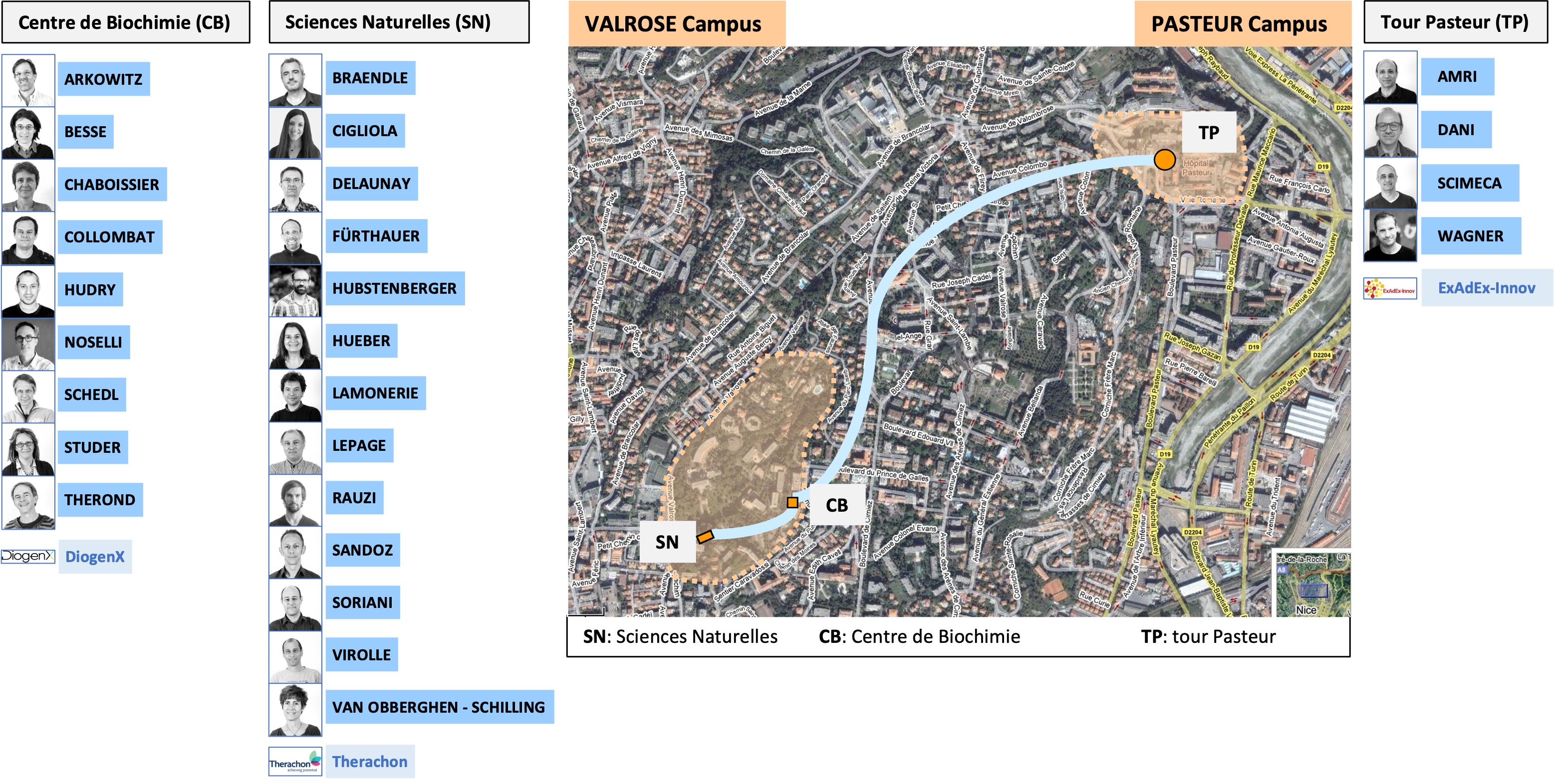The ‘institut de Biologie Valrose’ (iBV) is a joint research unit affiliated to and supported by the Université Côte d’Azur, CNRS and Inserm.
The iBV is an international research institute renowned for its basic research in developmental biology, cell biology, genetics, signaling as well as translational research on several pathologies (metabolic diseases, cancer, neuronal diseases, kidney diseases, reproduction, bone regeneration). The focus of the Institute is to understand the basic principles governing the development and function of normal cells, tissues, and embryos and those leading to pathogenesis. To achieve this goal, the Institute addresses broad questions including cell communication through major signaling pathways (PI3K, Wnt, Hh, JNK, Jak/Stat, Notch, Fas, FGF, TGF-beta, small GTPases, integrins, etc …), cell and tissue growth, metabolism, body patterning, cell death, cell-matrix interactions, cell differentiation, stem cells, morphogenesis, cell polarity, trafficking, neurogenesis, physiology, reproduction, cancer, evolution, etc… Overall, iBV groups use a variety of model systems including yeast, nematode, Drosophila, sea urchin, zebrafish, mouse, human cell lines as well as patient-derived samples. Finally, in support of research projects, the iBV maintains and develops 6 state-of-the-art technological platforms including biochemistry/molecular biology, bioinformatics, cytometry, genetic code expansion, histology, and imaging.
Research Teams

The iBV is currently organized into 26 independent research groups (which have obtained 15 ATIP/AVENIR, 2 ERC, 1 ANR Chair of Excellence, 1 EMBO Member, 4 EMBO YIP, 3 HFSP Career Award Development, grants). Five of these groups have been recruited within the past 5 years, including one team arising through internal emergence (Virolle), 3 ATIP/AVENIR group leaders (Rauzi, Hubstenberger, Hudry), 1ERC starting (Hudry), and 1 Inserm ‘Chaire de Professeur Junior’ CPJ and Signalife Labex Chair of Excellence (Cigliola). In addition to these 26 groups, the iBV hosts a multidisciplinary and inter-institution (Inria/I3S/iBV) team, the MORPHEME team, composed of researchers and students from different backgrounds (computational sciences, mathematics, physics, biology …). This project team is specialized in processing and advanced analysis of multi-dimensional biological images.
Startups
As shown over the past recent years, the iBV has a very strong capacity to promote the emergence of highly successful startups (e.g., Therachon-Pfizer, Innoskel, DiogenX). iBV teams are very active in translating their research and promising new startup projects that may benefit from the bio-incubator environment have emerged. One startup, ExAdEx-Innov has very recently been launched based on the research activities of C. Dani’s team. This startup, currently hosted by the iBV, uses innovative processes to culture human adipose tissues in 3D, opening the way to novel tissue-based therapeutic solution for metabolic diseases associated with obesity.
